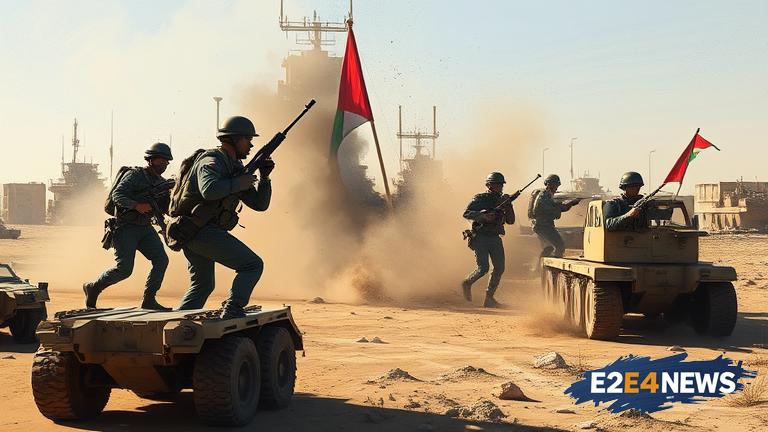The Israeli government, led by Prime Minister Benjamin Netanyahu, is allegedly planning a full-scale military occupation of the Gaza Strip. This move is expected to significantly escalate tensions in the region and potentially lead to widespread violence. The Gaza Strip, a coastal territory bordering Egypt and Israel, has been a focal point of conflict between Israel and the Palestinian militant group Hamas. For years, the region has been subject to periodic outbreaks of violence, with both sides engaging in rocket attacks and military operations. The proposed occupation is reportedly aimed at dismantling Hamas’s military capabilities and restoring Israeli control over the territory. However, such a move is likely to be met with fierce resistance from Palestinian militants and could lead to a substantial loss of life on both sides. The international community has expressed concerns over the potential consequences of such an occupation, with many calling for a peaceful resolution to the conflict. The United Nations has repeatedly condemned the violence in Gaza and urged both parties to engage in diplomatic efforts to find a lasting solution. Despite these efforts, the situation remains volatile, with periodic outbreaks of violence and a worsening humanitarian crisis. The Gaza Strip is home to over 2 million Palestinians, many of whom live in poverty and rely on international aid to survive. The region’s economy has been severely impacted by the ongoing conflict, with high levels of unemployment and a lack of access to basic services such as healthcare and education. The Israeli government has imposed a blockade on the Gaza Strip, restricting the movement of people and goods, which has further exacerbated the humanitarian crisis. The Palestinian Authority, which governs the West Bank, has been critical of the Israeli government’s actions in Gaza, accusing them of perpetuating a policy of occupation and apartheid. The international community has also been critical of Israel’s actions, with many countries calling for an end to the occupation and the establishment of a Palestinian state. The United States, a key ally of Israel, has been accused of providing military and financial support to the Israeli government, despite its actions in Gaza. The European Union has also been critical of Israel’s actions, with many member states calling for a peaceful resolution to the conflict. The situation in Gaza remains complex and volatile, with multiple parties involved and competing interests at play. A lasting solution to the conflict will require a comprehensive and inclusive approach, taking into account the needs and concerns of all parties involved. The international community must continue to play an active role in promoting peace and stability in the region, through diplomatic efforts and support for humanitarian initiatives. The people of Gaza deserve to live in peace and dignity, with access to basic services and opportunities for economic development. The Israeli government must be held accountable for its actions in Gaza, and the international community must work towards a just and lasting solution to the conflict. The occupation of Gaza is a critical issue that requires immediate attention and action from the international community. The consequences of inaction will be severe, with the potential for widespread violence and a further deterioration of the humanitarian crisis. The world must come together to demand a peaceful resolution to the conflict and an end to the occupation of Gaza. The time for action is now, and the international community must be prepared to take a stand against injustice and oppression. The people of Gaza will not be forgotten, and their struggle for freedom and dignity will continue to be supported by people around the world. The Israeli government’s actions in Gaza are a clear violation of international law and human rights, and must be condemned by the international community. The occupation of Gaza is a stain on the conscience of the world, and it is our collective responsibility to demand an end to it. The future of the region depends on our ability to come together and demand a just and lasting solution to the conflict. The time for peace is now, and we must work together to make it a reality.





